Shows

Shai DothanA Comparison of the Early Writings of Nietzsche and Kierkegaard - Part 4 (last part)This is the fourth and last in a series of four short lectures that describe the similarities and differences between the early work of the Danish philosopher Søren Kierkegaard and the German philosopher Friedrich Nietzsche.The lectures will focus on Kierkegaard's book Enten Eller and two of Nietzsche's books Die Geburt der Tragödie aus dem Geiste der Musik and Unzeitgemässe Betrachtungen. All lectures include short readings from the original text in Danish and German simultaneously translated and explained in English.This lecture focuses on the second difference between Nietzsche and Kierkegaard. Nietzsche vie...
2022-03-2327 min
Shai DothanA Comparison of the Early Writings of Nietzsche and Kierkegaard - Part 3This is the third in a series of four short lectures that describe the similarities and differences between the early work of the Danish philosopher Søren Kierkegaard and the German philosopher Friedrich Nietzsche.The lectures will focus on Kierkegaard's book Enten Eller and two of Nietzsche's books Die Geburt der Tragödie aus dem Geiste der Musik and Unzeitgemässe Betrachtungen. All lectures include short readings from the original text in Danish and German simultaneously translated and explained in English.This lecture focuses on the first difference between Nietzsche as a representative of a uni...
2022-03-2326 min
Shai DothanA Comparison of the Early Writings of Nietzsche and Kierkegaard - Part 2This is the second in a series of four short lectures that describe the similarities and differences between the early work of the Danish philosopher Søren Kierkegaard and the German philosopher Friedrich Nietzsche.The lectures will focus on Kierkegaard's book Enten Eller and two of Nietzsche's books Die Geburt der Tragödie aus dem Geiste der Musik and Unzeitgemässe Betrachtungen. All lectures include short readings from the original text in Danish and German simultaneously translated and explained in English.This lecture is dedicated to the second similarity between the two philosophers. Kierkegaard and Nie...
2022-03-2323 min
Shai DothanA Comparison of the Early Writings of Nietzsche and Kierkegaard - Part 1This is the first in a series of four short lectures that describe the similarities and differences between the early work of the Danish philosopher Søren Kierkegaard and the German philosopher Friedrich Nietzsche. The lectures will focus on Kierkegaard's book Enten Eller and two of Nietzsche's books Die Geburt der Tragödie aus dem Geiste der Musik and Unzeitgemässe Betrachtungen. All lectures include short readings from the original text in Danish and German simultaneously translated and explained in English. This lecture is dedicated to the first similarity between the two philosophers. Kierkegaard and Nietzs...
2022-03-2326 min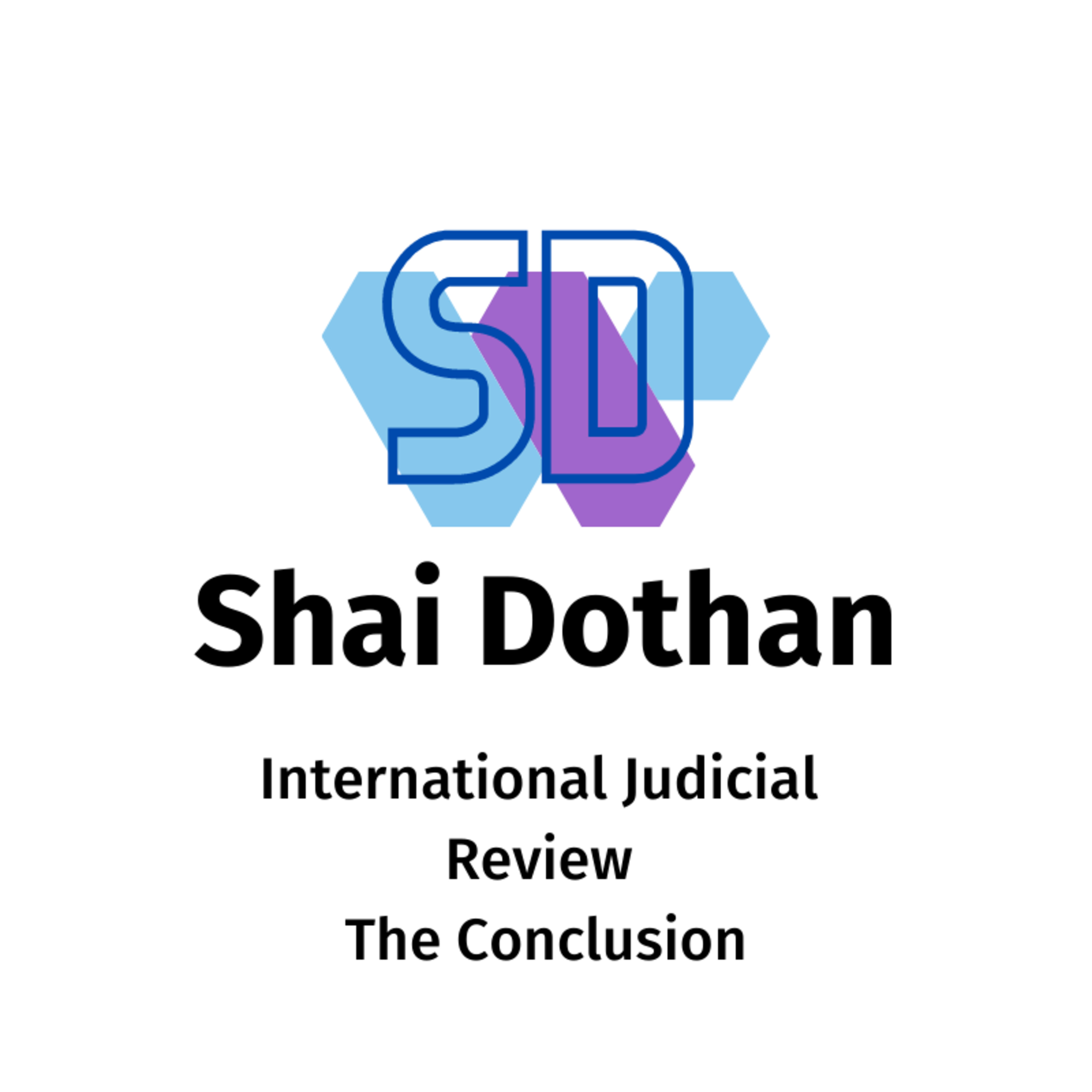
Shai DothanShai Dothan: International Judicial Review, The Conclusion.The Conclusion describes briefly the contents of Chapter 7 of the book that is focused on contrasting the theories in the book with established theories of domestic judicial review and on presenting different paradigms for explaining international courts. Most of the presentation is dedicated to explaining how the arguments in the previous chapters combine when a really complicated case arises.
2021-08-2406 min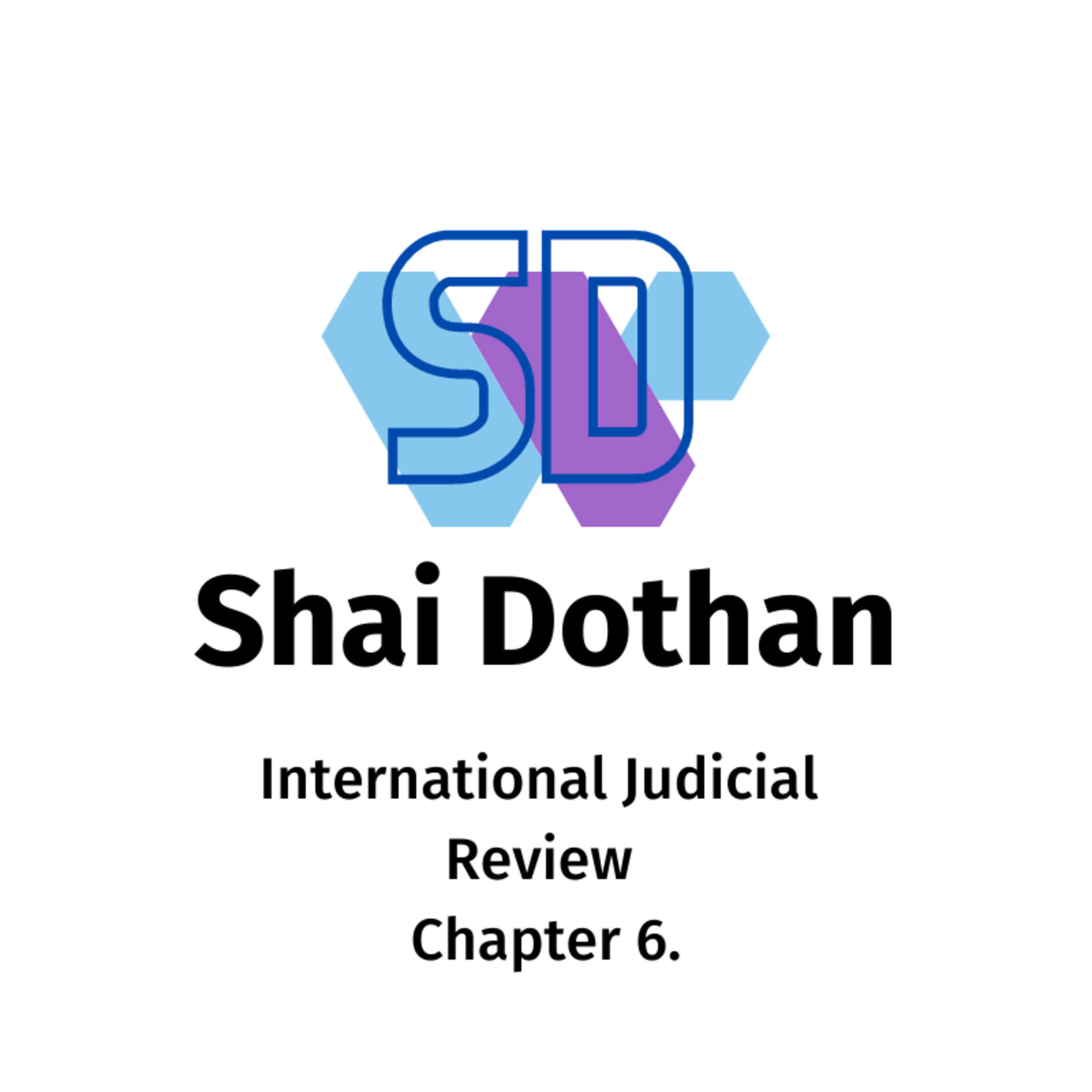
Shai DothanShai Dothan: International Judicial Review, Chapter 6.Chapter 6 faces the final challenge to international courts' intervention, the fear that their intervention would lead to bad outcomes because it would change the incentives of relevant parties. It is true that domestic officials operate under the shadow of potential international intervention and this may give them bad incentives. The chapter demonstrates how the rules of admissibility used by international criminal tribunals can affect the incentive of national authorities on the one hand and individuals on the other hand. Understanding the interaction of officials on several levels helps to determine which rule of admissibility will lead to greater deterrence...
2021-08-2405 min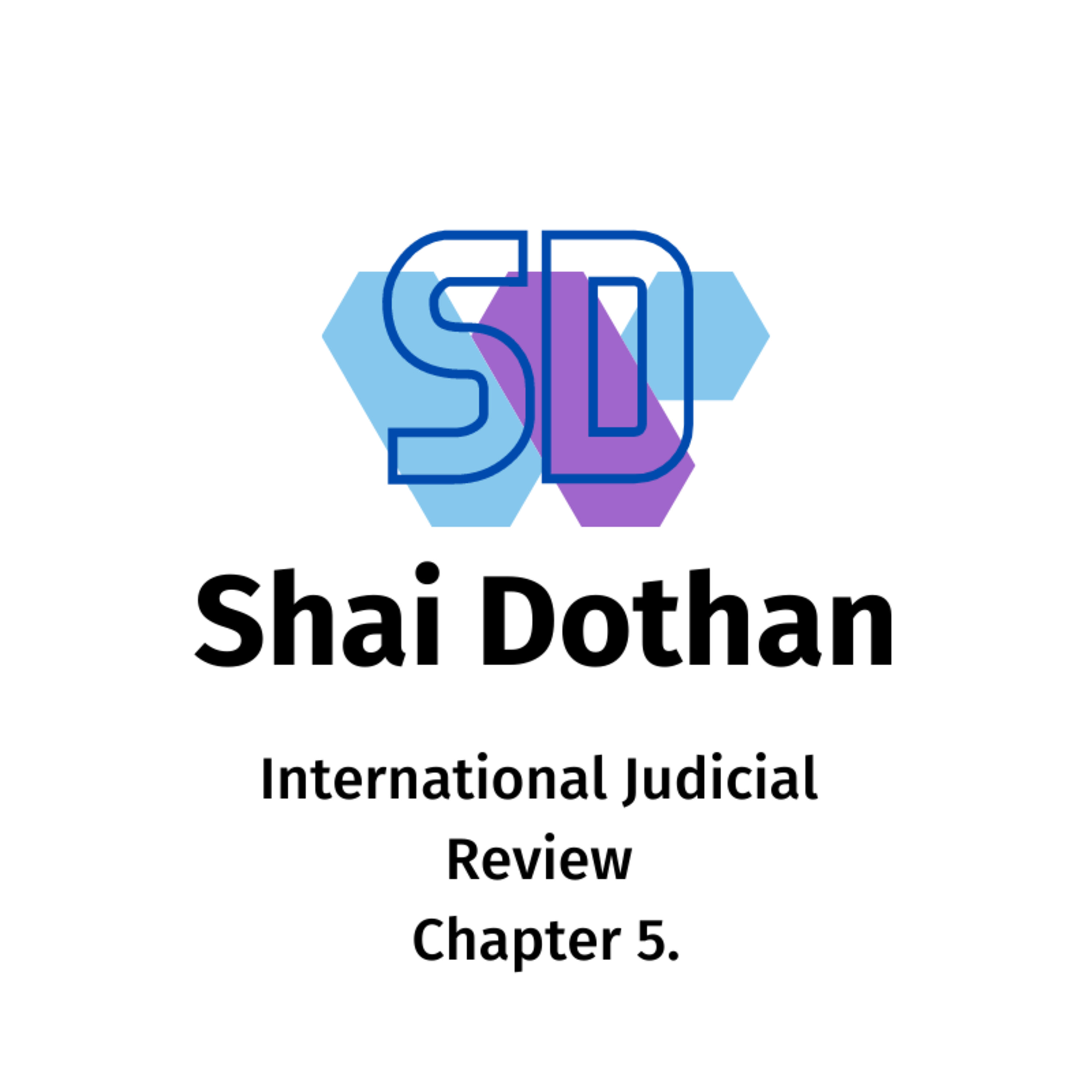
Shai DothanShai Dothan: International Judicial Review, Chapter 5.Chapter 5 is focused on the risk of capture of international courts by NGOs. The chapter reviews the advantages and disadvantages of NGO involvement in international courts' proceedings either as direct applicants, through filing amicus curiae briefs, or informally. Different procedures are recommended for different international courts depending on their circumstances. The second part of the chapter is focused on the reputational sanctions NGOs can create after an international court issues its judgment. Drawing on quantitative and qualitative empirical research I conducted and on insights from Social Network Analysis, the chapter argues that international courts can create conditions in which...
2021-08-2409 min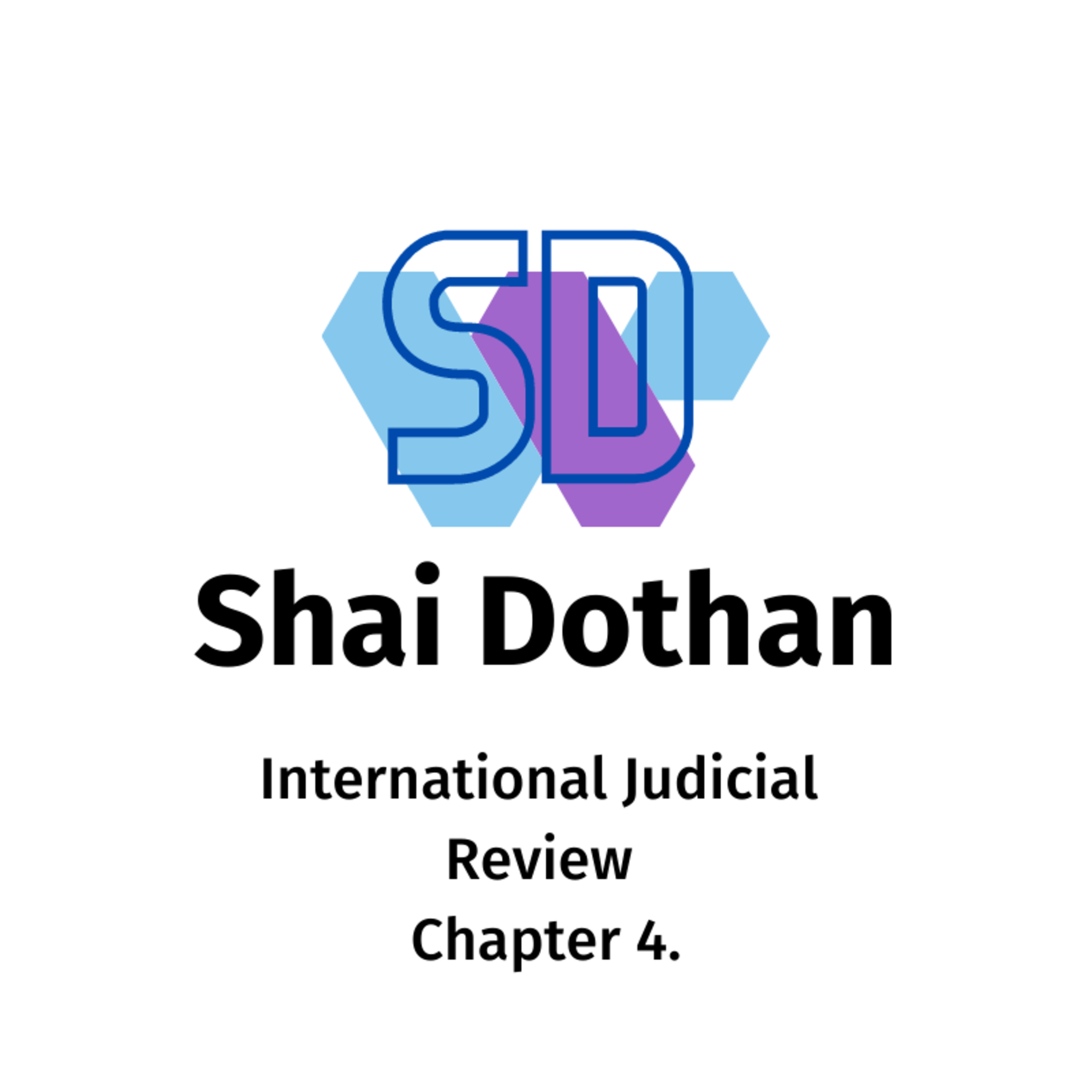
Shai DothanShai Dothan: International Judicial Review, Chapter 4.Chapter 4 replies to the argument that international courts who decide important policy decisions take them off the public agenda and therefore stifle public debate. The chapter explains that an international judgment is often just the entry point into a public discussion and a dialogue with the relevant authorities. In fact, the ensuing public deliberation may be superior to what would happen absent international courts' intervention. International courts shift the discussion from interests and naked power to rights, and they change the social settings in a way that processes and disseminates information well to wider segments of the public. International...
2021-08-2310 min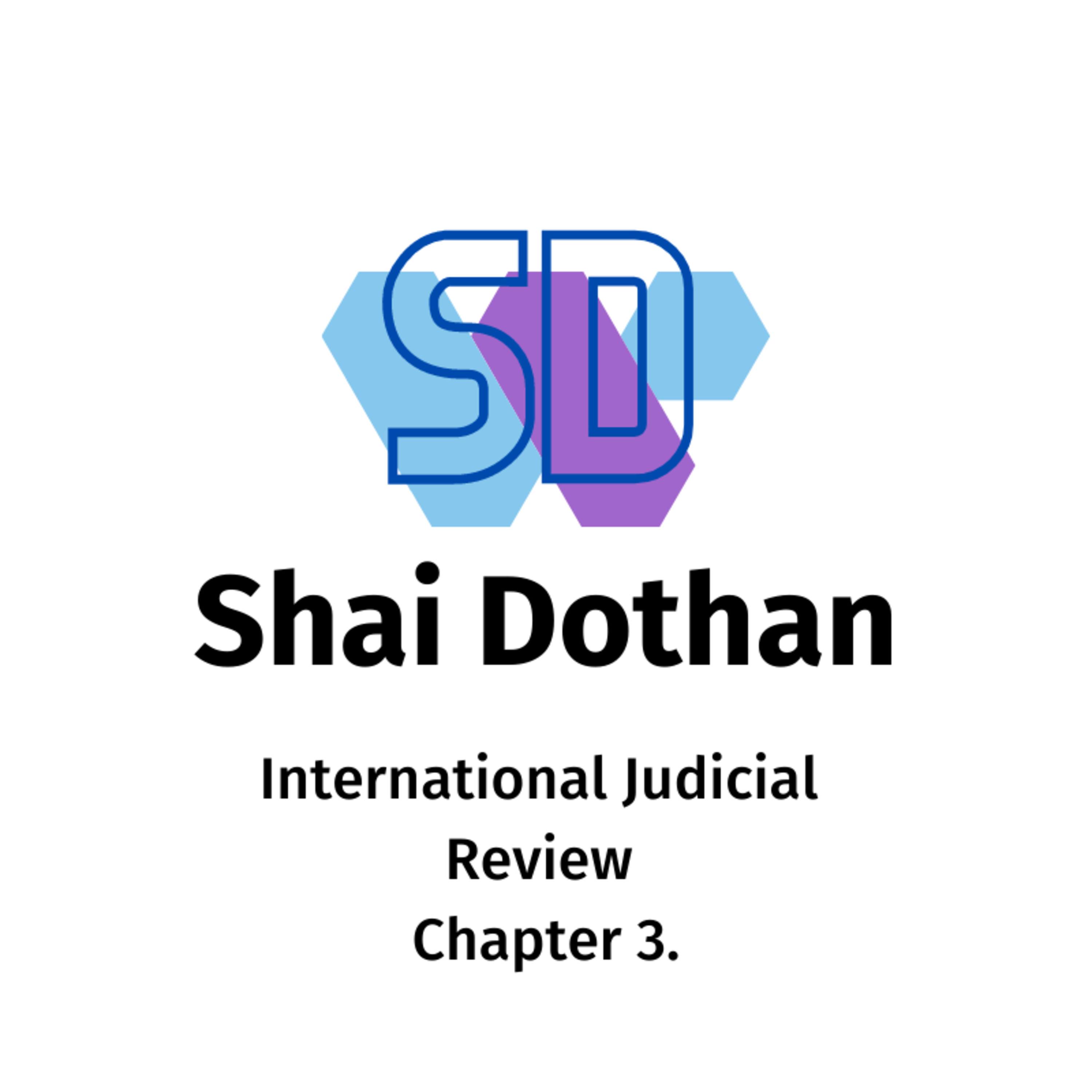
Shai DothanShai Dothan: International Judicial Review, Chapter 3.Chapter 3 targets another challenge to international courts' intervention: the argument that international courts do not make better decisions than national bodies. The chapter identifies a set of circumstances in which international courts, solely because of their institutional position and regardless of the proficiency of their judges, are actually able to make better decisions than national courts. The core of the argument is the Condorcet Jury Theorem, which suggests that a majority decision within a group is likely to be superior to the decision of each individual decision-maker, provided that each decision-maker decides independently. If national judges try to learn...
2021-08-2307 min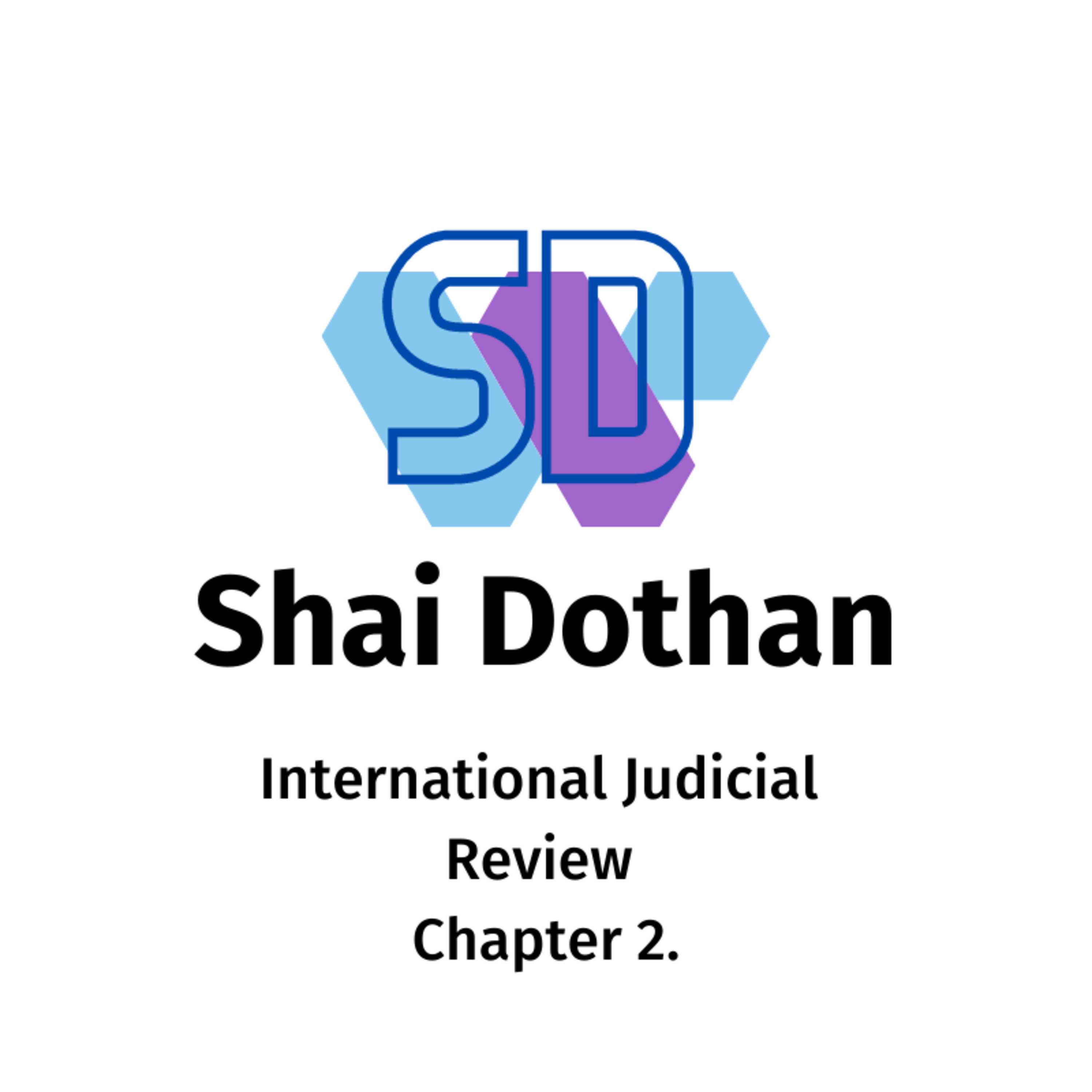
Shai DothanShai Dothan: International Judicial Review, Chapter 2.Chapter 2 addresses the legitimacy of intervention by international courts—unelected international bodies—in the decisions of democratically elected domestic officials. The chapter starts by delineating the commitment of international courts to the text of treaties that regulate their jurisdiction. It continues by explaining when expansive interpretation of these treaties is legitimate because the process of negotiation or revision of treaties gives certain countries an unjustified power to limit the treaty obligations of all member countries. Finally, the chapter explains that even if a country fully controls its treaty obligations it may not properly represent the interests of all parties affe...
2021-08-2310 min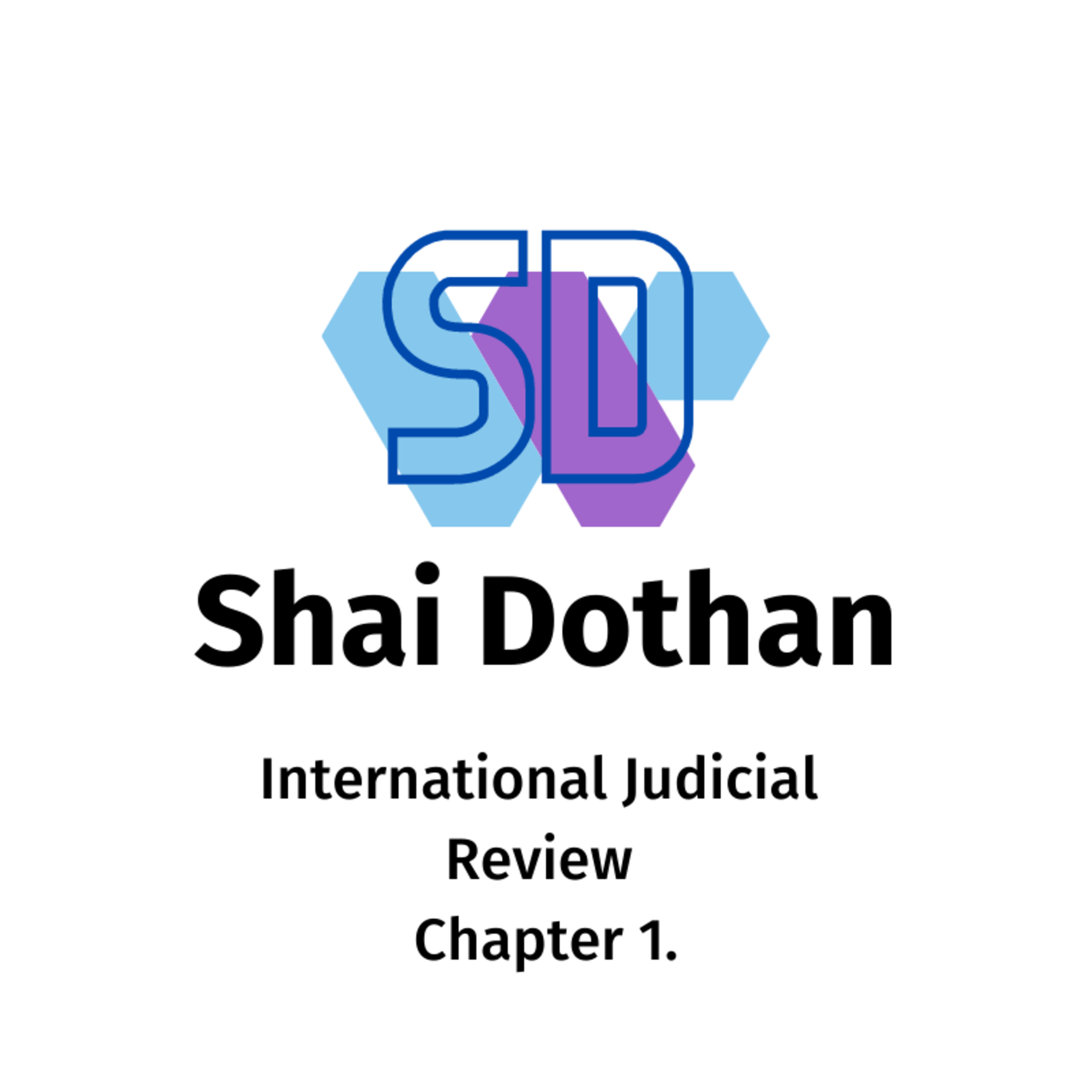
Shai DothanShai Dothan: International Judicial Review, Chapter 1.This is the introduction to the book.Chapter 1. contains an overview of the arguments in the following chapters.https://www.cambridge.org/core/books/international-judicial-review/E918BA3B4E4055DCD249B2BE429DEAAC
2021-08-2310 min
Shai DothanBridging the Abyss"Real meaning always lies in the connection between two ideas or more.""Two moods of thinking are therefore necessary: a cool and distant comprehension of distinct concepts, and a music that storms through these concepts and creates a greater whole.""In social life, just like in art and in science, one needs both distinction and music, both islands and bridges."Link to the blog post: https://shaidothan.wordpress.com/2021/08/19/bridging-the-abyss/
2021-08-2209 min